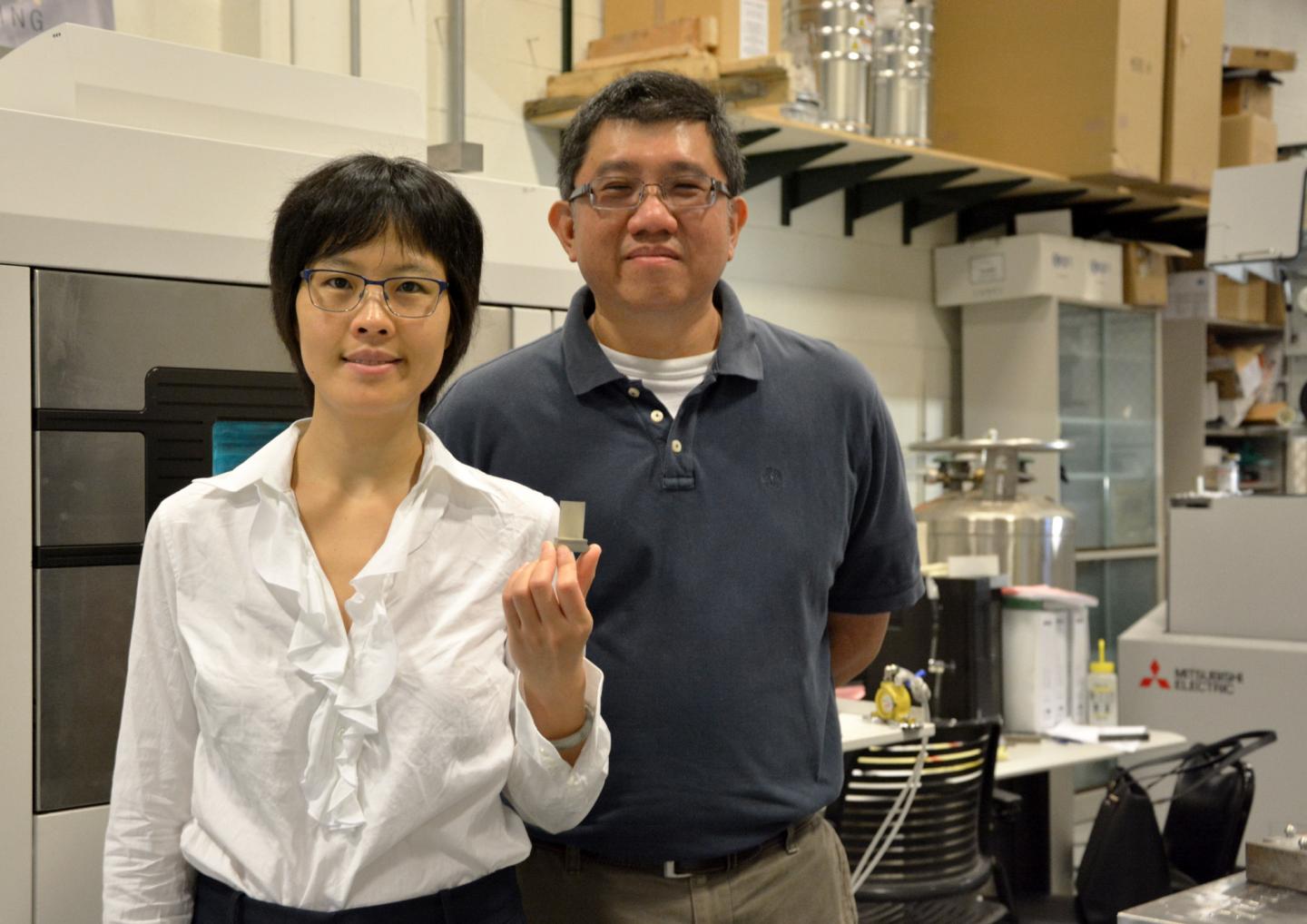Researchers receive DOE funding to develop better quality control for 3D printing turbine components

Credit: University of Pittsburgh
PITTSBURGH (July 11, 2019) — The U.S. Department of Energy, through its University Turbine Systems Research program, has awarded researchers at the University of Pittsburgh’s Swanson School of Engineering $802,400 to find an effective quality assurance method for additive manufacturing, or 3D printing, of new-generation gas turbine components.
The three-year project has received additional support from the University of Pittsburgh ($200,600), resulting in a total grant of $1,003,000.
Xiayun (Sharon) Zhao, PhD, assistant professor of mechanical engineering and materials science at Pitt, will lead the research, working with Albert To, associate professor of mechanical engineering and materials science at Pitt, and Richard W. Neu, professor in the Georgia Institute of Technology’s School of Mechanical Engineering. The team will use machine learning to develop a cost-effective method for rapidly evaluating, either in-process or offline, the hot gas path turbine components (HGPTCs) that are created with laser powder bed fusion (LPBF) additive manufacturing (AM) technology.
“LPBF AM is capable of making complex metal components with reduced cost of material and time. There is a desire to employ the appealing AM technology to fabricate sophisticated HGPTCs that can withstand higher working temperature for next-generation turbines. However, because there’s a possibility that the components will have porous defects and be prone to detrimental thermomechanical fatigue, it’s critical to have a good quality assurance method before putting them to use,” explains Dr. Zhao. “The quality assurance framework we are developing will immensely reduce the cost of testing and quality control and enhance confidence in adopting the LPBF process to fabricate demanding HGPTCs.”
###
ANSYS will serve as an industrial partner in this project.
Media Contact
Maggie Pavlick
[email protected]
Original Source
https:/




